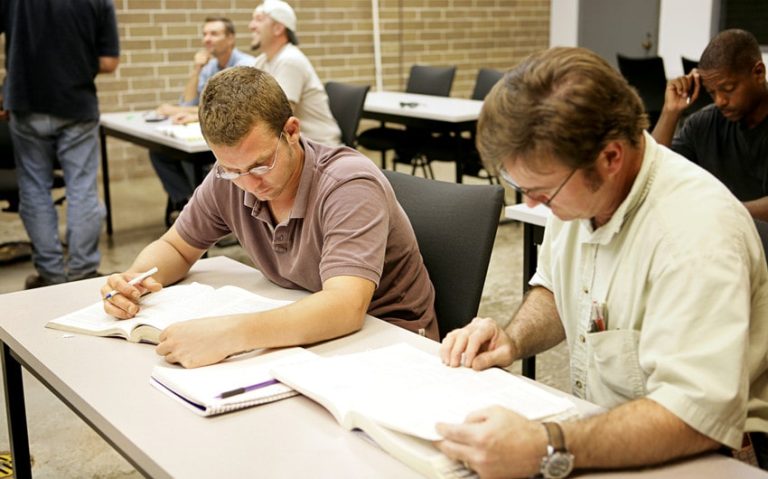Having a good mindset about learning is very important for how well children do in school and grow as people. If kids are excited, curious, and believe in themselves when it comes to learning, they tend to take part more in their education and reach the best of their abilities. In this text, we look at good methods that parents and teachers can use to help young kids start to feel positive about learning.
Create a Nurturing Environment
The environment where learning happens is very important for forming how a child feels about studying. Make sure the home and school surroundings are caring and helpful, letting children explore, ask questions, and be creative. Offer chances for practical learning activities, include engaging tools and materials, and acknowledge the distinct abilities and achievements of every child.
Encourage a Growth Mindset
Encourage the development of a growth mindset in children by highlighting how much effort, continuous trying, and being strong when facing challenges matter in education. Show them that their skills and brainpower can grow with dedication and regular training instead of thinking these qualities cannot change. Motivate them to accept challenges, gain knowledge from errors, and rejoice in their improvements and successes as they occur.
Make Learning Fun and Engaging
Teaching young kids should be fun and interesting. Use games, tasks, and practical experiences to grab their attention and inspire them. Employ diverse instructional strategies and techniques to cater for the varying styles and preferences of learners. Foster a sense of discovery, trial, and artistic expression to render education an enriching and satisfying journey.
Set Realistic Expectations
Make expectations for young children that are real and can be reached, thinking about what each child can do and where they are growing up. Do not put too much pressure or ask for things that are not possible from kids; it might make them feel upset or like they are not enough. Focus on celebrating their progress and efforts, then offer support and encouragement to assist them in reaching their full potential.
Foster a Love of Reading
Reading is a basic ability that establishes the base for doing well in school and continues to be important for learning throughout life. It helps if young kids are encouraged to enjoy reading by giving them lots of different books and materials suitable for their age to read. Regularly spend time reading as a family, making it an enjoyable and fun experience. Foster curiosity about the world by using books and motivate your kids to discover new concepts and viewpoints through their reading adventures.
Utilize Name Labels for Organization and Ownership
Putting name labels with a child’s name on things like books and pencils in the place where they learn makes them feel it belongs to them and helps keep everything in order. This can make children feel good about learning. When their own name is on items, they know which things are theirs, so this helps them look after what they have better and feel proud of taking care of their stuff.
Moreover, having name tags can make it easier for kids to know which items are theirs in places where many children gather, like at school or on the playground. This helps them feel that they belong to a group. When we use name stickers in places of learning, moms and dads and teachers help make a place that is both tidy and personal. It encourages little ones to have good thoughts about education.
Cultivate Curiosity and Inquiry
Promote a sense of wonder and thoughtful questioning in kids by posing questions that don’t have simple yes or no answers, inspiring them to discover things on their own, and nurturing an atmosphere where they love to learn.
Make situations for the youngsters where they can raise their own questions, delve into what fascinates them, and find solutions by looking closely at things, trying out ideas with hands-on activities, and studying information. Support them to be curious about the world they live in and help their natural desire to learn and find out new stuff.
Celebrate Diversity and Inclusivity
Celebrate the variety and inclusion within educational spaces, making chances for children to learn about varied cultures, viewpoints, and life stories. Nurture a classroom atmosphere that is inclusive and full of respect so every child feels important, respected, and part of the group. Help kids to value and accept the distinct qualities that each person has, and guide them to be kind, able to share feelings, and considerate of other people.
Keep clear of bad habits
It’s really easy for kids to pick up bad habits at school. Habits like smoking, vaping etc can often hold kids back from an academic point of view. That’s why many schools are looking into vape alarms and detectors to stop kids doing it altogether. This mixed with good education, and buy-in from parents can stop any threat to an academic success and potentially keep the students on the right path. Keeping clear of bad habits is vital, but there has to be a multi-effort from the kid, the parents and the school. If one of these falls down, problems can quickly develop.
Conclusion
Helping young children do well in school is not just about teaching them lessons from books; it’s also about making them feel good and excited about learning, which they will carry with them forever.
If we make a caring place for kids to learn, encourage the belief that their abilities can grow with effort, turn education into something enjoyable and interactive, have sensible goals for them to reach, give guidance when they need it, help build their love for reading stories and exploring new ideas through questions and discovery while celebrating different cultures and welcoming everyone equally – then parents and teachers are giving these youngsters the tools of self-belief, eagerness to learn more,and the toughness needed not only in class but also everywhere else as they go forward.







